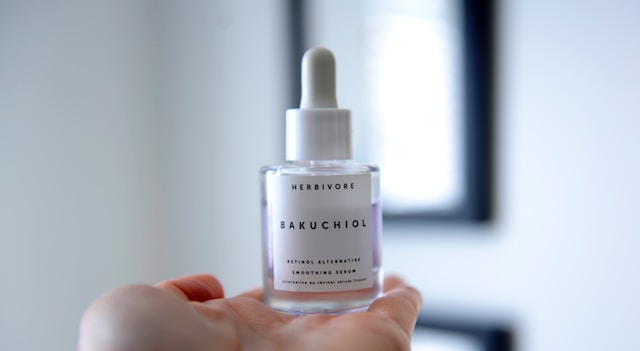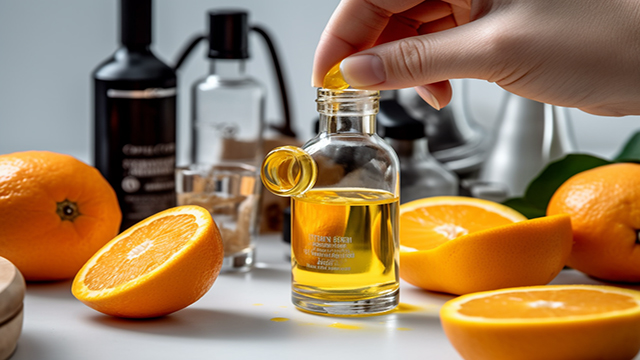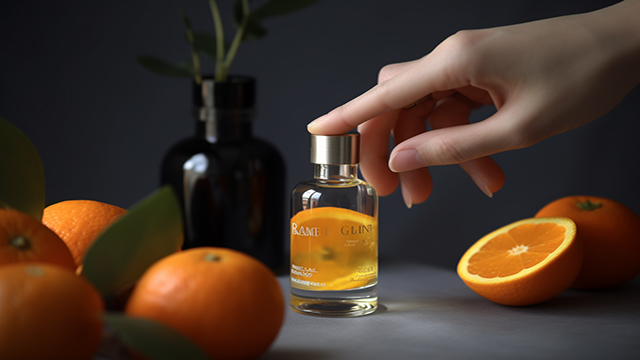Vitamin A and retinol are the most important nutrients for healthy skin, eyesight, and overall health. But what exactly is the difference between them, and how do they affect our bodies?

This guide will explain the differences between vitamin A and retinol and help you understand when to use each one.
We all know that vitamins are essential for good health. Vitamin A, in particular, plays an important role in maintaining vision, immunity, reproduction, growth, and cell development.
Retinol is a form of vitamin A that can be found in foods like eggs and dairy products or taken as a supplement. Understanding Vitamin A Vs Retinol can help you make sure you get enough of this vital nutrient!
What Is Vitamin A?
Vitamin A is an essential nutrient that plays a vital role in overall health and wellbeing.
It is found in two forms: preformed vitamin A, or retinoids, which are active forms of the vitamin, and provitamin A carotenoids, such as beta-carotene, which must be converted into retinol by the body before it can be used.
Vitamin A helps to keep our eyes healthy and supports immune system functioning. Read: Why You Need Vitamin A For Healthy Vision.
Preformed vitamin A is only available through animal sources such as liver, eggs, and dairy products, while most plant sources contain beta-carotene and other provitamins A carotenoids, which must be converted into retinol before they can be used.
For example, sweet potatoes are rich in beta-carotene but also contain fat-soluble compounds known as carotenoid esters like retinyl palmitate, which help to increase absorption rates of important nutrients by up to five times.
It’s clear that dietary intake of vitamins is key for overall health and well-being.
As we move onto understanding what exactly retinol is and how it differs from vitamin A, it’s important to remember these facts about both its forms – preformed vitamin A (retinoids) and provitamin A carotenoids (beta-carotene).
With this knowledge firmly established, let’s explore what makes Retinol unique…
What Is Retinol?
Retinol is a form of vitamin A and an essential nutrient for health. It plays a critical role in cell differentiation, genetic expression, vision, and immunity.

Retinol is broken down into several different molecules with specific functions:
- Retinoic acid binds to nuclear receptors on target cells and directs gene-specific activity.
- Retinaldehyde helps regulate cell growth and metabolism.
- Retinol-binding protein transports retinol to the liver, where it can be converted into active metabolites that are used by other tissues throughout the body, such as the eyes or skin.
Vitamin A serves as a precursor molecule to help make all these other forms of retinol available within our bodies.
Therefore, retinol is important in maintaining overall health due to its conversion pathway from vitamin A being necessary for the proper functioning of various organ systems and cellular processes. As we move forward, let’s explore the differences between vitamin A and retinol even further!
Differences Between Vitamin A And Retinol
At first glance, it may seem that Vitamin A and Retinol are the same thing. But a closer look reveals important differences between these two compounds. When it comes to your visual function, the health of your skin, and eyesight, vitamin A and retinol play an essential role in providing key nutrients for optimal functioning. So let’s dive into the details of how they differ!

Vitamin A is actually a group of fat-soluble vitamins that can be found naturally in animal foods such as liver or fish oil. The most active form is called retinol, which is what we often refer to when discussing vitamin A benefits.
On the other hand, our bodies cannot directly absorb Vitamin A, so we must convert it into its usable form — retinoid acid — before being able to make use of it. This process can become inefficient with age leading to conditions like xerophthalmia (dryness of the eyes) and acne due to deficiencies in this vital nutrient.
Retinol, on the other hand, is already in its ready-to-use form, meaning no conversion step is required by our body for absorption – thus making it easier for us to get the full benefit from the compound without any hindrance from a slow metabolism or aging processes. Therefore, if you’re looking for more immediate results then using a product containing pure retinol would likely be best for you.
Both Vitamin A and Retinol offer numerous advantages when it comes to maintaining healthy skin but understanding their differences will help ensure you’re getting the right one for your needs! Moving forward let’s explore further into how these substances can benefit skin health…
Benefits Of Vitamin A And Retinol For Skin Health
Vitamin A and retinol are essential components of a healthy diet. They play an important role in skin health, growth and development, immune system support, vision health, reproductive health and more. In this section we will focus on the benefits of Vitamin A and Retinol for skin health.

The most well known benefit of vitamin A is its ability to reduce night blindness caused by insufficient amounts of Vitamin A in the body; this can be addressed through dietary intake or supplementation with carotenoids such as beta-carotene that convert into active forms of vitamin A when consumed.
Additionally, adequate levels of vitamin A help maintain the integrity of your skin cells’ membranes which acts as a barrier against environmental damage from free radicals – thus protecting your skin from premature aging.
Lastly, both Vitamin A and retinol have antioxidant properties that protect the skin from oxidative stress while promoting healing. This has been shown to improve overall complexion, including reducing wrinkles and other signs of aging. Moreover, research suggests that combining oral doses (with foods) along with topical ointments containing Vitamin A derivatives may lead to improved results than either method alone.
These findings show us why it’s so important to ensure you get enough Vitamin A through food sources like beef liver, sweet potato, kale, spinach, and carrots – among many others – or supplements if necessary due to a potential deficiency.
Moving forward, let’s explore how these two powerful nutrients benefit eye health…
Benefits Of Vitamin A And Retinol For Eye Health
Moving on from discussing the benefits of vitamin A and retinol for skin health, let’s take a look at their impact on eye health. Vitamin A is essential for epithelial tissue maintenance in the eyes, as well as providing protection against infection and inflammation. Retinol also plays a critical role in eye health; it helps maintain normal vision by helping the rods and cones function optimally.

It’s important to note that zinc levels play an integral role in maintaining healthy levels of vitamin A and retinol—not only are low zinc levels linked with lower serum concentrations of both compounds, but insufficient dietary intake can lead to decreased absorption of these vitamins into the body.
| Food Source | Vitamin A (IU) | Zinc (mg) |
|---|---|---|
| Carrots | 9377 | 0.9 |
| Beef Liver | 28185 | 5.2 |
| Spinach | 1573 | 0.6 |
Consuming foods rich in both vitamin A and zinc, such as carrots, beef liver, or spinach, help ensure adequate intakes of these two nutrients, which are beneficial for your overall digestive, immune system, and ocular health! As we’ve seen so far, there are numerous ways that vitamin A and retinol contribute to our well-being – next up, we’ll explore other health benefits they offer.
Other Health Benefits Of Vitamin A And Retinol
Vitamin A and Retinol have many health benefits beyond just vision.
Vitamin A is a powerful antioxidant that can help protect cells from damage caused by free radicals. It has also been linked to positive impacts on the liver, helping it to perform essential functions such as breaking down proteins and fats, producing bile salts for digestion, storing glycogen, synthesizing new proteins, and clearing toxins from the body.
In addition, Vitamin A helps increase cell growth in healthy tissues while stopping cell growth in unhealthy tissues, which could potentially reduce cancer risk.
Retinol also boosts immunity by increasing the production of white blood cells. This means retinol may be able to help fight off infection more effectively than Vitamin A alone.
While both vitamins are found naturally in plant-based sources like fruits, vegetables, and certain oils, animal sources like fish oil provide higher concentrations of Vitamin A and Retinol that may be beneficial for some individuals.
When taken in excess, however, these fat-soluble nutrients can become toxic, so it’s important to talk with your doctor or registered dietitian about your daily needs before supplementing them into your diet.
It’s clear that there are numerous benefits associated with consuming adequate amounts of Vitamin A and Retinol but knowing where to find them is equally as important for optimal health outcomes.
Now let’s look at the natural and synthetic forms of vitamin a and retinol available today.
Natural And Synthetic Forms Of Vitamin A And Retinol
In addition to the many health benefits of vitamin A and retinol, there are also various forms in which these nutrients can be consumed. Both natural and synthetic varieties exist, each with its own advantages and drawbacks. It is important for individuals looking to incorporate vitamin A or retinol into their diets to understand the differences between them both.
When it comes to types of vitamin A, the two most common sources are preformed vitamin A (also known as animal-sourced) and provitamin A (plant-sourced). Preformed Vitamin A can be found in dairy products like cheese and eggs, as well as fish liver oils. On the other hand, provitamin A is found mainly in plant foods such as sweet potatoes, carrots, kale, spinach, cantaloupe melon, apricots, and mangoes. Provitamin A is converted by the body into active Vitamin A when eaten.
The same holds true for retinol – some forms are naturally occurring, while others have been synthetically produced. Natural sources include beef liver and egg yolk, while synthetic forms can generally be identified by the prefix “Retinyl” on product labels. Synthetic retinol has been used more commonly than natural due to its longer shelf life; however, certain studies suggest that natural forms may have superior bioavailability compared to synthetic ones.
It is clear then that understanding the different types of vitamin A and retinol available is important when deciding how best to supplement one’s diet with these vital vitamins and minerals. Knowing where they come from will allow an individual to make informed dietary choices based on personal needs and preferences.
Vitamin A Vs Retinol: Potential Side Effects
It’s important to understand that although vitamin A and retinol are closely related, they can have different effects on the body. While both are necessary for various functions, too much of either one can be problematic. That’s why it’s essential to know their potential side effects before consuming them in higher doses than needed.
When taken as a supplement or consumed through foods rich in these vitamins, excessive amounts of vitamin A and retinol may lead to nausea, vomiting, dizziness, headache, loss of appetite, dry skin and even liver damage.
Additionally, there is some evidence linking high levels of vitamin A to an increased risk for certain types of cancer, such as lung cancer and breast cancer. Therefore, individuals should consult with their doctor before taking any supplements or increasing their intake significantly beyond recommended daily allowances (RDA).
Consumers should also pay attention to food labels when buying fortified products like breakfast cereals and bread; they contain added forms of these vitamins which could contribute toward reaching unsafe levels if not monitored carefully.
It is best practice to assess your current level based on blood tests prior to introducing additional sources into the diet; this will help you determine how much more you need and whether additional supplementation might be required at all.
As always, moderation is key – eat plenty of fruits and vegetables every day for optimal health benefits without exceeding safe limits for Vitamin A & Retinol consumption.
Conclusion
In conclusion, vitamin A and retinol are both beneficial for overall health. When it comes to skin health, these two compounds can help improve the appearance of the skin, as well as reduce inflammation and wrinkles.
For eye health, they may protect against macular degeneration and other age-related vision problems. Additionally, they provide numerous benefits, such as a decrease in risk factors associated with certain types of cancer.
While they have many positive effects on our bodies, there is also potential for side effects when taken at high doses or in synthetic forms. As a registered dietitian/nutritionist, I recommend that you speak with your healthcare provider before taking supplements containing either vitamin A or retinol if you’re unsure about how it could affect your individual needs.
Frequently Asked Questions
What is the difference between vitamin A and beta-carotene?
Vitamin A and beta-carotene are both types of carotenoids, which are pigments found in plants. However, vitamin A is a specific type of carotenoid that can be converted into retinol, a form of vitamin A that the body can use. Beta-carotene, on the other hand, is not directly converted into vitamin A but can be converted into other forms of vitamin A in the body.
Can vitamin A and retinol be obtained from a vegan or vegetarian diet?
Yes, it is possible to obtain vitamin A and retinol from a vegan or vegetarian diet. While animal-based sources of vitamin A and retinol are more easily absorbed by the body, plant-based sources such as sweet potatoes, carrots, spinach, and kale contain high levels of beta-carotene which can be converted into vitamin A in the body.
Can vitamin A and retinol be harmful if taken in excess?
Yes, vitamin A and retinol can be harmful if taken in excess. High levels of vitamin A can cause toxicity, which can lead to symptoms such as dizziness, nausea, and even liver damage. It is important to follow recommended daily intake guidelines and consult with a healthcare professional before taking vitamin A or retinol supplements.
Are there any other alternatives to vitamin A and retinol for skin and eye health?
Yes, there are other alternatives to vitamin A and retinol for skin and eye health. For skin health, antioxidants such as vitamin C, vitamin E, and coenzyme Q10 have been shown to be effective in reducing the signs of aging and protecting against sun damage. For eye health, nutrients such as lutein and zeaxanthin found in leafy green vegetables and egg yolks can help protect against age-related macular degeneration.
Can vitamin A and retinol help prevent cancer?
There is some evidence to suggest that vitamin A and retinol may help prevent certain types of cancer, such as lung and prostate cancer. However, more research is needed to fully understand the potential benefits of these nutrients in cancer prevention. It is important to remember that vitamin A and retinol should not be used as a sole method of cancer prevention and to consult with a healthcare professional for individualized advice.
References
- “What’s the Difference Between Retinol and Vitamin A?” by Emily Algar. Published on Byrdie: https://www.byrdie.com/retinol-vs-vitamin-a-5078218
- “Retinol vs Vitamin A: Which is Better for Your Skin?” by Jacqueline Kilikita. Published on Cosmopolitan: https://www.cosmopolitan.com/uk/beauty-hair/skin/a37562236/retinol-vs-vitamin-a-skin/
- “Vitamin A vs Retinol: The Difference and Which is Best for Your Skin” by Dr. Patricia Wexler. Published on Allure: https://www.allure.com/story/vitamin-a-retinol-difference-skin-care